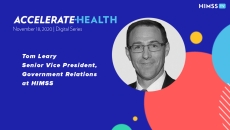Regulation
Last week the European Commission signed off on the merger, on the condition that Google follows through with a handful of commitments.
As the agency's workload swells with the weight of a public health emergency, digital health companies on a timeline should consider whether their products truly warrant a regulatory submission, writes Epstein Becker & Green's Bradley Merrill Thompson.
The regulator imposed a series of requirements for the tech companies that must be followed for at least 10 years.
Alongside step-by-step instructions, the Ellume COVID-19 Home Test's accompanying app automatically reports users' results to the relevant public health authorities.
Mahana Therapeutics' Parallel is a three-month digital treatment that logs patients' symptoms to deliver relevant guidance and teach them condition-management skills.
The nebulizer called VitalMed is able to connect to a corresponding app designed to help patients track their symptoms.
The new algorithms will be able to detect for sinus rhythm with premature ventricular contractions, supraventricular ectopy and sinus rhythm with wide QRS.
Lucira's molecular testing kit allows individuals to collect their own nasal sample and insert it into a device that provides results in under 30 minutes. The company is aiming to sell the single-use tests for roughly $50.
Tom Leary, SVP of government relations at HIMSS, says the presidential election has passed, but ongoing Senate races could have unforeseen impacts on healthcare IT.
This week's top stories include the Supreme Court appearing favorable to keeping the Affordable Care Act, Google Cloud unveiling AI tools for analyzing unstructured medical text, and Epic customers gaining access to a COVID-19 risk prediction model.

